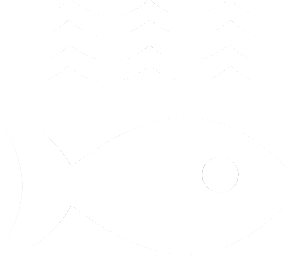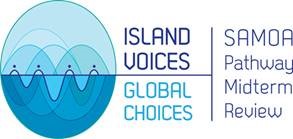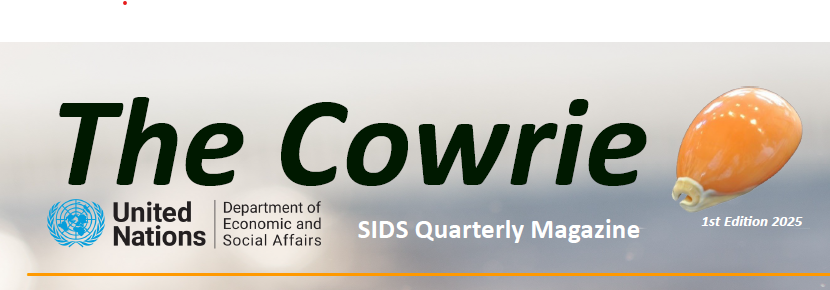Petits États insulaires en développement
Description
Description
Il ressort du Programme d’action de la Barbade adopté en 1994, complété par la Stratégie de Maurice de 2005 et par le document final de l’examen Maurice+5, que les petits États insulaires en développement, bien qu’affligés par des difficultés économiques et confrontés à des impératifs de développement semblables à ceux des pays en développement en général, ont des vulnérabilités et des caractéristiques qui leur sont propres. Les handicaps auxquels se heurtent les petits États insulaires en développement sont mis en avant dans le document « L’avenir que nous voulons », adopté lors de la Conférence des Nations Unies sur le développement durable (Rio+20) qui s’est tenue à Rio de Janeiro (Brésil), en juin 2012 : leur petite taille, leur isolement, l’insuffisance de leurs ressources et de leurs exportations ainsi que leur vulnérabilité face aux problèmes environnementaux qui se posent à l’échelle mondiale et aux chocs économiques externes, notamment face aux nombreuses répercussions des changements climatiques et aux catastrophes naturelles qui les touchent de façon plus fréquente et plus intense (par. 178). Les petits États insulaires en développement continuent de lutter contre ces difficultés structurelles et externes pour parvenir à leur développement durable.
La troisième Conférence internationale sur les petits États insulaires en développement, qui s’est tenue au Samoa en septembre 2014, avait pour thème général « Pour un développement durable des petits États insulaires en développement fondé sur des partenariats véritables et durables ». Près de 300 partenariats, annoncés lors de la conférence, font l’objet d’un suivi dans le cadre de la Plateforme de partenariat. Les Modalités d’action accélérées des petits États insulaires en développement (Orientations de Samoa) adoptées à l’issue de la Conférence définissent les domaines d’intervention prioritaire pour les petits États insulaires en développement et recommandent l’adoption urgente de mesures et la fourniture d’une assistance à l’appui des efforts consentis par ces États pour parvenir au développement durable.
Le DESA dirige la coordination interinstitutions au sein du système des Nations Unies, par l’intermédiaire du Comité exécutif pour les affaires économiques et sociales plus (CEAES plus), et entre les diverses entités appartenant ou non au système des Nations Unies qui interviennent auprès des petits États insulaires en développement, par l’intermédiaire du Groupe consultatif interorganisations sur les petits États insulaires en développement, afin de suivre la mise en œuvre du Programme d’action de la Barbade, de la Stratégie de Maurice et des Orientations de Samoa, ainsi que les progrès réalisés dans les partenariats avec les PEID. En outre, le DESA, et en particulier le Groupe des PEID, fournit une assistance et des conseils techniques, soutient les processus intergouvernementaux et rend compte des avancées obtenues dans le cadre de cette mise en œuvre.
Pour d’autres informations et documents sur ce sujet, voir ce lien.
UN MEMBERS (37)
Atlantic, Indian Ocean and South China Sea (AIS) (8)
Caribbean (16)
![]() Saint Vincent and the Grenadines
Saint Vincent and the Grenadines
Pacific (13)
![]() Micronesia (Federated States of)
Micronesia (Federated States of)
NON-UN MEMBERS/ASSOCIATE MEMBERS OF REGIONAL COMMISSIONS (20)
![]() American Samoa
American Samoa
![]() Anguilla
Anguilla
![]() Aruba
Aruba
![]() Bermuda
Bermuda
![]() British Virgin Islands
British Virgin Islands
![]() Cayman Islands
Cayman Islands
![]() Commonwealth of Northern Marianas
Commonwealth of Northern Marianas
![]() Cook Islands
Cook Islands
![]() Curacao
Curacao
![]() French Polynesia
French Polynesia
![]() Guadeloupe
Guadeloupe
![]() Guam
Guam
![]() Martinique
Martinique
![]() Montserrat
Montserrat
![]() New Caledonia
New Caledonia
![]() Niue
Niue
![]() Puerto Rico
Puerto Rico
![]() Sint Maarten
Sint Maarten
![]() Turks and Caicos Islands
Turks and Caicos Islands
![]() U.S. Virgin Islands
U.S. Virgin Islands
Multidimensional Vulnerability Index for SIDS
The need and call for the development of indices that adequately capture the special vulnerabilities of small island developing States (SIDS) has been around since the adoption of the Agenda 21. The call was repeated in the Barbados Programme of Action (BPoA), mentioned in the Mauritius Strategy and re-echoed in the S.A.M.O.A Pathway.
For the last 3 decades, a plethora of UN General Assembly resolutions also carried similar repeated calls, the latest of which was in December 2020, Paragraph 8(a) of Resolution A/RES/75/215, where the Assembly calls on the UN Secretary-General:
“To provide recommendations as part of his report on the present resolution to the General Assembly at its 76th session on the potential development and coordination of work within the UN system on a multidimensional vulnerability index for small island developing States, including on its potential finalization and use;”
This MVI page carries and reflect the discussions and work towards the possible development and use of the Multidimensional Vulnerability Index (MVI).
Inter-Agency Consultative Group (IACG) on SIDS
The IACG is an informal consultative mechanism at the working level in which the SIDS focal points of relevant UN agencies as well as international and regional intergovernmental organizations (IGOs) come together to exchange views and information. The SIDS-focused and hybrid membership composed of the UN and non-UN agencies make it an effective tool for maintaining the momentum created at the Third International Conference on SIDS in Samoa, 2014, and for keeping SIDS issues high on the international agenda. This group also explores ways and means to enhance coordinated and collaborative actions in support of SIDS in implementing the SIDS Accelerated Modalities of Action (SAMOA) Pathway (Samoa Pathway) based on their respective areas of expertise.
Learn more about the IACG here.
IACG Meeting Summaries:
- https://sdgs.un.org/sites/default/files/2024-10/SIDS_IACG_MEETING_SUMMARY_19_SEPTEMBER_2024_FINAL.pdf
- https://sdgs.un.org/sites/default/files/2024-10/SIDS_IACG_MEETING_SUMMARY_FINAL_APRIL24.pdf
- https://sdgs.un.org/sites/default/files/2024-10/Summary_of_Briefing_to_IACG_18Dec23_DESA.pdf
- https://sdgs.un.org/sites/default/files/2024-10/SIDS_IACG_MEETING_SUMMARY_01June2023_FINAL.pdf
- https://sdgs.un.org/sites/default/files/2024-10/SIDS_IACG_Summary_Final_MARCH2022.pdf
SG Report Submissions
Paragraph 20 of resolution 75/215 requested the Secretary-General to submit to the General Assembly, at its seventy-sixth session, a report on the follow-up to and implementation of the Samoa Pathway, including on progress made and continuing challenges faced, and on the efforts to assist small island developing States to recover from the COVID-19 pandemic. Submissions received are as per below: (submission listed in alphabetical order).
SAMOA Pathway Indicators
Pursuant to Paragraph 20 of resolution 74/217, the Secretariat conducted a study to identify the Samoa Pathway priority areas not covered by the Sustainable Development Goals or the Sendai Framework for Disaster Risk Reduction 2015–20, and if any, to develop those Targets and Indicators.
- Development of a Monitoring Framework for the SAMOA Pathway -https://sdgs.un.org/documents/final-report-development-framework-monitoring-samoa-pathway-43955
- Anex I - https://sdgs.un.org/documents/annex-i-priority-actions-dimensions-34263
- Anex II - https://sdgs.un.org/documents/annex-ii-priority-actions-post-2015-policies-allignment-34264
Disaster Risks Funding Landscape
UNGA Resolution A/RES/74/217 requested the Secretary-General to conduct, in consultation with Member States, all relevant United Nations system entities and other relevant stakeholders, an examination of the disaster-related funding and support environment, with a view to the possible development of a targeted voluntary disaster fund, mechanism or financial instrument, coordinated with and complementary to existing mechanisms, to assist small island developing States in managing disaster risk and building back better after disasters, and to report thereon at the seventy-sixth session of the General Assembly.
- Disaster Risk Financing for SIDS Draft Final Report - https://sdgs.un.org/sites/default/files/2022-01/Disaster_Risk_Financing_forSIDS_DraftFinalReport.pdf
SG Report Submissions
Paragraph 21 of resolution A/RES/76/203 requests the Secretary-General to submit to the General Assembly, at its seventy-seventh session, a report on the follow-up to and implementation of the Samoa Pathway, including on progress made and continuing challenges faced, on the implementation of the present resolution, building on the discussions and outcomes of the high-level meeting to review progress made in addressing the priorities of small island developing States through the implementation of the Samoa Pathway, convened in September 2019, and on the efforts to assist small island developing States to recover from the COVID-19 pandemic. Submission received are as per below: (in alphabetical order).
- SG Report: https://sdgs.un.org/documents/report-secretary-general-samoa-pathway-48589
- Analysis: https://sdgs.un.org/sites/default/files/2022-07/Analysis.pdf https://sdgs.un.org/documents/part-c-qualitative-assessment-caribbean-final-eclac-48432
- Letter from PM of Antigua and Barbuda to Host the 4th SIDS Conference: https://sdgs.un.org/sites/default/files/2022-07/Letter_PMofAntigua%26Barbuda_%20toHost_the4th_SIDS_Conference.pdf
- MVI Panel ToR 2021: https://sdgs.un.org/sites/default/files/2022-07/MVI_Panel_TOR_%202021.pdf
- The Interim Report on MVI for SIDS July 2022: https://sdgs.un.org/sites/default/files/2022-07/The_Interim_Reportonthe_MVI_%20July2022.pdf
- SG Report on the implementation of UN General Assembly resolution 73/229, entitled "Towards the sustainable development of the Caribbean Sea for present and future generations": https://documents-dds-ny.un.org/doc/UNDOC/GEN/N22/441/40/PDF/N2244140.pdf?OpenElement
- Submission received are as per below: (in alphabetical order).
Paragraph 44 of the General Assembly Resolution A/RES/77/245 requested the Secretary-General to submit to the General Assembly, at its 78th session, a report on the follow-up to and implementation of the Samoa Pathway, including on progress made and continuing challenges. The Secretariat requested member States, UN system organizations and entities and all stakeholders to provide information accordingly. Below are the responses received, posted in their entirety. The Secretariat conveys its upmost gratitude to all contributors and apologizes that due to strict word count restrictions, not all information was reflected in the Secretary-General’s Report.
Submission received are as per below: (in alphabetical order).
S-G Report: https://sdgs.un.org/documents/report-secretary-general-samoa-pathway-2023-54020
SG Report on the follow-up to and implementation of the SAMOA Pathway:
https://sdgs.un.org/documents/sg-report-samoa-pathway-2024-57308
SG Report Submissions:
- Submissions received are as per below: (in alphabetical order)
SG Report on the implementation of UN General Assembly Resolution 77/163 entitled “Towards the sustainable development of the Caribbean Sea for present and future generations”:
- https://sdgs.un.org/documents/s-g-report-caribbean-sea-2024-56688
- Submissions received are as per below: (in alphabetical order)
SG Report on the 'Follow-up to and implementation of the Antigua and Barbuda Agenda for Small Island Developing States: A Renewed Declaration for Resilient Prosperity’
https://sdgs.un.org/documents/sg-report-abas-60222
SG Report Submissions:
- Submissions received are as per below: (in aphabetical order)
The Antigua and Barbuda Agenda for Small Island Developing States: A Renewed Declaration for Resilient Prosperity (A/RES/78/317)
I. The small island developing States story
1. In 1992, at the United Nations Conference on Environment and Development, we, the international community, formally declared small island developing States a special case both for environment and development and committed to assist them in meeting their sustainable development objectives. This was further promulgated in the first decennial United Nations conference on small island developing States in Barbados in 1994 and was subsequently reiterated at the second conference in Mauritius in 2005 and the third conference in Samoa in 2014.
2. After three decades and three programmes of action, small island developing States remain a special case for sustainable development, given their unique vulnerabilities. We note the remarkable successes and progress that they have made over the years, and welcome in this regard the ownership, leadership and considerable efforts that have been demonstrated by small island developing States, along with the support provided by the international community.
3. During this period, small island developing States have and continue to provide stable and democratic governance for their citizenry and have strived to provide productive economies and safe societies throughout unrelenting turbulent global times. Small island developing States were heavily affected by two “once-in-a-generation” crises that struck in 2008 and 2020, while grappling with even more intense and frequent disasters and natural hazards. In addition, they have assumed leadership roles in areas such as finance, climate change and plastics, and are stewards of the ocean, including managing 19.1 per cent of the world’s exclusive economic zones and the resources they hold. Small island developing States have paved the way for many of the most progressive movements in these areas in policy development and the establishment of concrete actions in the multilateral arena.
4. We remain concerned that small island developing States are facing the unrelenting and compounding impacts of climate change, biodiversity loss, pollution, disasters and natural hazards, health and other social-related challenges and economic vulnerabilities, as well as the progressive deterioration in their ability to withstand external shocks and enhance their resilience. Successive global crises, along with the coronavirus disease (COVID-19) pandemic, have further exacerbated and negatively compounded the sustainable development of small island developing States.
5. Small island developing States are inherently and uniquely vulnerable to exogenous shocks owing to, inter alia, their small size, geographical remoteness, highly dispersed populations, the limited scale and undiversified nature of their economies, high dependence on external markets, and extreme exposure to disasters and natural hazards and the effects of climate change. Recognizing vulnerability does not mean that small island developing States exhibit weakness or lack potential for development. Rather, it means recognizing that they are disproportionately impacted in terms of physical destruction and non-economic and economic losses to a far greater scale than elsewhere.
6. Small island developing States are particularly vulnerable to adverse impacts of climate change, including, inter alia, erratic precipitation, increasingly frequent and extreme weather phenomena, more frequent and severe tropical cyclones, floods and drought, diminishing freshwater resources, desertification, coastal erosion, land degradation and sea level rise, which represent the gravest of threats to the survival and viability of their people, natural ecosystems and overall sustainable development. We take note of the concerns expressed by small island developing States that the impacts of climate change could have possible implications on small island developing States, including humanitarian, economic, social, cultural, ecological and, as exacerbated by other factors, security consequences.
7. In order for small island developing States to achieve sustainable development and resilient prosperity, we must assist small island developing States to diversify their economies and strengthen State and productive capacities. At the same time, the international financial architecture should go further to fully address the unique development circumstances of small island developing States and make accessing concessional finance easier for them, which could mitigate their fiscal constraints and reduce the risk of indebtedness, especially for highly indebted small island developing States, and prevent the reversal of hard-earned development gains. Therefore, the special case of small island developing States must continue to be recognized by the international community and must take into account these new and emerging challenges.
8. We recognize small island developing States’ need for access to affordable, reliable, sustainable and modern energy, particularly renewable energy. Small island developing States are facing significant barriers related to accessing finance, cost of capital, market readiness and upskilling and reskilling workforces needed for just, inclusive and resilient energy transitions.
9. We reaffirm the importance of freedom, peace and security, respect for all human rights, including the right to development and the right to an adequate standard of living, including the right to food, the rule of law, gender equality, women’s empowerment, reducing inequalities and the overall commitment to just and democratic societies for development.
10. We recognize that gender equality and women’s empowerment and the full realization of human rights for women and girls have a transformative and multiplier effect on sustainable development and are a driver of economic growth in small island developing States. Women can be powerful agents of change.
11. Small island developing States aspire to a resilient form of prosperity that is reflected in sustainable development for all in their countries, where economic growth and well-being are sustained and their economies are robust, diversified, adaptable and able to withstand shocks, ensuring social equity and promoting environmental sustainability.
12. The next 10 years are critical for small island developing States. A new context is emerging wherein the economic, social and environmental as well as geopolitical threats to the development of small island developing States are so great that they can only be ameliorated by a reinvigorated enabling environment that gives meaningful effect to their sustainable development. Without the full support of the international community, small island developing States will endure potentially far-reaching consequences.
13. We reaffirm the continued applicability of the Programme of Action for the Sustainable Development of Small Island Developing States (Barbados Programme of Action) adopted in 1994, the Mauritius Strategy for the Further Implementation of the Programme of Action for the Sustainable Development of Small Island Developing States (Mauritius Strategy) of 2005 and the SIDS Accelerated Modalities of Action (SAMOA) Pathway of 2014 as blueprints setting out the sustainable development priorities of small island developing States.
14. We recommit to the full and timely implementation of the 2030 Agenda for Sustainable Development, the Addis Ababa Action Agenda of the Third International Conference on Financing for Development and the United Nations Framework Convention on Climate Change and the Paris Agreement, as well as the Sendai Framework for Disaster Risk Reduction 2015–2030, the New Urban Agenda, the Kunming-Montreal Global Biodiversity Framework and other relevant intergovernmentally agreed development outcomes, frameworks and instruments.
15. We reaffirm all the principles of the Rio Declaration on Environment and Development, including, inter alia, the principle of common but differentiated responsibilities, as set out in principle 7 thereof.
16. We, the Heads of State and Government and high-level representatives, having met in St. John’s from 27 to 30 May 2024, at the fourth International Conference on Small Island Developing States, with the participation of civil society, the private sector, youth, academia and other relevant stakeholders, firmly reaffirm our commitment to support small island developing States on their pathway to achieving sustainable development and resilient prosperity, where the progress of today does not compromise the possibilities of tomorrow. Through targeted, results-focused interventions and investments, we will support small island developing States as they exercise full ownership of their new agenda and seek to establish partnerships as equals, upholding values of equity, national ownership, mutual trust, transparency and accountability, and cooperation and promoting benefits across priority areas in their new 10-year agenda.
II. What do small island developing States want?
A. Build resilient economies
17. Enhancing inter-island connectivity and linking economies of small island developing States to regional markets and global supply chains, including by integrating them into existing and emerging maritime and multimodal transport and economic corridors, and encouraging sustainable transport initiatives to support small island developing States remains key.
18. We underscore that small island developing States face substantial structural challenges in building the necessary ecosystem, institutions and capacity for promoting and using science, technology, innovation and digitalization to drive economic growth and sustainable development.
19. Small island developing States face significant challenges in data collection, analysis, technical and institutional capacity, which hinders evidence-informed policymaking, monitoring progress and accessing development financing, and we emphasize that capacity-building for stronger data governance and management will allow small island developing States to support better data collection, protection, transparency and data sharing.
20. We welcome and call for support for the efforts of small island developing States in establishing a Small Island Developing States Centre of Excellence in Antigua and Barbuda that will be launched at the fourth International Conference on Small Island Developing States, which will include, inter alia, a small island developing States data hub, a technology and innovation mechanism and an Island Investment Forum.
21. Acknowledging that small island developing States are highly dependent on imports, with limited export capacity, and face current account deficits and limited fiscal space, compounded by limited access to concessional financing, small island developing States seek the support of the international community to:
(a) Develop and expand their productive capacity by:
(i) Undertaking national productive capacities gap assessments;
(ii) Implementing holistic productive capacities development programmes;
(iii) Investing in higher productivity sectors, including in advanced technologies and digital economy to provide better paying jobs for people in small island developing States and reduce brain drain and labour mobility;
(b) Increase trade and investment by:
(i) Designing prioritized trade and investment strategies to consolidate market opportunities in existing sectors and markets and identify opportunities for economic diversification to reduce vulnerability;
(ii) Enabling market access in goods and services for small island developing States by considering trade rules, as appropriate, that take into account the special circumstances of small island developing States, and encouraging the full utilization of preferential market access by improving the application of trade rules and their transparency for small island developing States, in compliance with World Trade Organization commitments;
(iii) Strengthening local, national and regional institutions as well as the regulatory and domestic policy environment and trade facilitation bodies;
(iv) Enabling business environments for private sector investment, entrepreneurship, especially micro-, small and medium-sized enterprises, cooperatives and enterprise development;
(v) Strengthening capacity for resource mobilization, investment flows monitoring, and firm-level data collection, analysis and use;
(vi) Supporting the establishment of the biennial Island Investment Forum in the Small Island Developing States Centre of Excellence as a dedicated platform for promoting sustainable economic development in small island developing States by promoting investment opportunities, knowledge exchange and collaborative initiatives, addressing the unique challenges faced by small island developing States and contributing to their long-term resilience and prosperity;
(vii) Reviewing and reforming old-generation investment treaties that are in force for small island developing States, where desired, with the aim of safeguarding policy space to pursue sustainable development objectives;
(c) Promote resilient and sustainable tourism by:
(i) Minimizing pollution and waste, enhancing environmental awareness, conserving and protecting the environment, respecting wildlife, biodiversity, ecosystems and cultural diversity;
(ii) De-risking investments, strengthening cross-sector collaboration between tourism and other sectors, and modernizing the sector and related up- and downstream services;
(iii) Raising awareness of the importance of resilient and sustainable tourism, including through Global Tourism Resilience Day;
(iv) Developing creative and innovative employment solutions, including for informal workers, to provide resilience to the workforce, taking into account national circumstances;
(v) Enhancing entrepreneurship, education and training in cultural and heritage management and preservation, and in specific domains of the creative industries;
(vi) Promoting and investing in the resilience of cultural heritage, traditions and customs, assets and infrastructure;
(d) Promote sustainable ocean-based economies by:
(i) Assisting in the pursuit of opportunities in sustainable fisheries, aquaculture, mariculture, marine and coastal tourism, ocean-based renewable energy, and mineral and other related resources, sustainable shipping and maritime transport and ports;
(ii) Establishing public-private sector partnerships and appropriate capital market instruments and providing technical assistance to stock exchanges and security market regulators to enhance bankability and feasibility of projects;
(iii) Creating and supporting an enabling policy environment to maximize diaspora remittances, investment, skills and experience for research, innovation, economic development and diversification to shift towards environmentally sustainable practices and technologies.
B. Foster safe, healthy and prosperous societies
22. We underline the need to promote peaceful, prosperous, inclusive societies and safe communities for achieving sustainable development, and to build effective, accountable and inclusive institutions at all levels. Good governance, rule of law, human rights, fundamental freedoms, equal access to fair justice systems, and measures to combat corruption and curb illicit financial flows will be integral to our efforts.
23. We remain concerned that poverty, including extreme poverty, unemployment, inequality and exclusion continue to disproportionately affect people in vulnerable situations, particularly women, children, youth, persons with disabilities and older persons, and reduces the potential productive capacities in small island developing States. These challenges are compounded by youth unemployment, loss of skilled and semi-skilled labour, through labour mobility, and gender inequality, including unpaid care and domestic work.
24. The inadequacy of the health and social protection systems of small island developing States and the prevalence of communicable and non-communicable diseases in small island developing States pose a threat to sustainable development and economic productivity, disproportionately affecting the poorest and those in vulnerable situations.
25. Acknowledging the efforts of small island developing States to improve health and social protection systems, boost State capacity in the public sector, and reduce poverty, unemployment, inequality and exclusion, small island developing States seek the support of the international community to:
(a) Strengthen health systems by:
(i) Promoting and ensuring equitable and timely access to affordable and quality health-care services in order to achieve universal health coverage, leaving no one behind, noting that any external financing should be aligned with national and regional priorities;
(ii) Developing nationally appropriate, inclusive social protection systems, including through the One Health approach and other holistic approaches as well as the integration of climate and health policies;
(iii) Enhancing prevention, preparedness and response to better cope with health emergencies, epidemics, pandemics and climate change-related health impacts through capacity-building, upgrading of surveillance and early warning systems and adapting sustainable infrastructure and equipment so that it is climate-resilient, low greenhouse gas emission and sustainable;
(iv) Integrating essential non-communicable diseases and mental health services into primary health care and universal health coverage;
(v) Enhancing health literacy to promote healthy lifestyles and preventive measures to address risk factors for non-communicable diseases, including obesity, unhealthy diets, physical inactivity, harmful use of alcohol, tobacco use and exposure to air pollution and addressing the linkages between the environment and nutrition;
(vi) Establishing an integrated and whole-of-government approach to address the growing challenges of vision impairment, particularly myopia and other preventable conditions, including integrating comprehensive eye care services as part of primary health care and universal health coverage;
(vii) Building and retaining a trained, skilled, efficient and motivated health workforce that is equipped to meet the health needs of the population at all levels;
(b) Build strong institutions by:
(i) Increasing public participation and consultation, promoting civic education and engaging civil society organizations to actively and meaningfully participate in policy and budget decisions, including by establishing citizen participation mechanisms and creating spaces for inclusive dialogue;
(ii) Strengthening coordination and collaboration among government institutions and working beyond traditional boundaries to unify capabilities across agencies, sectors and society;
(iii) Strengthening the synergy between public policy planning and financing through integrated national financing frameworks to increase the expenditure efficiency of public resources, as a complement to resource mobilization from all sources;
(iv) Investing in continuous education and training and professional development programmes for public servants, and building public sector skill sets for the future, including in improving the agility of public service delivery and public procurement;
(v) Designing systems for government institutions to generate effective policies and investment decisions;
(vi) Boosting State capacity to effectively implement policies through the strengthening of public sector reforms, building effective, accountable and inclusive institutions at all levels and improving transparency and accountability;
(vii) Incorporating and strengthening e-government and digital solutions as a means of overcoming accessibility, scale and dispersion of population, bridging the digital divides and supporting the institutional capacity of local and national government institutions;
(viii) Assisting national and regional institutions to combat transnational crime and violence, including drug trafficking and the illicit trade in small arms and light weapons, taking into account the national circumstances of small island developing States;
(c) Achieve gender equality, empower youth and leave no one behind by:
(i) Promoting and protecting the full realization of the human rights of all women and girls and eliminating all forms of discrimination and of violence against all women and girls, including, inter alia, by developing and implementing gender-responsive action plans;
(ii) Increasing women’s leadership and promoting their full, equal and meaningful participation and representation at all stages and levels of decision-making processes;
(iii) Investing in policies and programmes in productive capacities, education and skills that would also address emerging issues among children, young people, particularly boys and young men, taking into account national circumstances;
(iv) Meaningfully involving youth in decision-making processes as appropriate, including through youth councils and advisory committees, supporting youth-led initiatives and creating opportunities for engaging youth in sustainable development;
(v) Promoting and protecting the full realization of the human rights of persons with disabilities, and enabling their full, equal, meaningful and effective participation, representation and leadership in decision-making, addressing stigma and discrimination, eliminating violence and increasing their access to economic opportunities, education and health care;
(vi) Strengthening adaptive social protection systems and expanding coverage of national social protection programmes through comprehensive risk management strategies, to promote the realization of equity and equality, particularly for those in vulnerable situations, including women, children, youth, persons with disabilities and older persons;
(vii) Investing in developing the skills of and fostering opportunities to pursue alternative livelihoods for communities displaced by disasters, many of which are exacerbated by climate change, while recognizing the importance of safeguarding and passing on tangible and intangible cultural heritage from generation to generation and ensuring their financial, economic and social inclusion so that they can leverage their talent and ideas to contribute to, and benefit from, their new communities;
(viii) Supporting the advancement of sports as an important enabler of sustainable development, including for its growing contribution to the realization of development and peace in its promotion of tolerance and respect and the contributions it makes to the empowerment of women, young people, children, in particular girls, individuals and communities as well as to health, education and social inclusion objectives.
C. A secure future
26. Recognizing that various anthropogenic pressures and adverse impacts of climate change as well as global shocks continue to impede water availability and food and energy security, and further recognizing the importance of access to affordable, reliable, sustainable and modern energy, and connectivity, small island developing States seek the support of the international community to:
(a) Foster sustainable energy transitions and energy efficiency and ensure access to affordable, reliable, sustainable and modern energy, based on all energy sources, in particular renewable energy sources, by:
(i) Urgently enhancing support, investment and partnerships for just, inclusive, equitable and resilient energy transitions and energy efficiency, including clean and renewable energy infrastructure, technology and training, with a view to fulfilling small island developing States’ bold and ambitious renewable energy targets for the next decade;
(ii) Addressing the underlying barriers in accessing and mobilizing finance to deploy renewable energy, including enabling environments and policy, legal and regulatory frameworks;
(iii) Developing small island developing States-specific technologies and applications for renewable energy deployment, and integration into the power system, and promoting efforts to reduce the cost of capital for renewables;
(iv) Providing support to overcome the structural barriers that hinder just, inclusive, resilient energy transitions, including institutional capacity, particularly skills gaps, and grid stabilization and upgrading;
(b) Develop integrated water resources management by:
(i) Developing policies, legislative frameworks, institutional and human capacities for effective, inclusive, sustainable and integrated water resources management and facilitate the expansion of wastewater treatment, recycling and reuse;
(ii) Significantly reducing the impact of climate change on water scarcity through enhancing climate resilience to water-related hazards and supporting a climate- and disaster-resilient water supply and sanitation, and access to safe and affordable potable water and sanitation, and hygiene for all;
(iii) Providing appropriate gender-sensitive and disability-inclusive facilities and infrastructure for safe drinking water, sanitation and hygiene, and waste management systems;
(c) Enhance food security by:
(i) Developing and implementing adaptation and mitigation strategies that take into account the linkages between food, water and energy, such as integrating climate-resilient infrastructure and promoting sustainable agricultural practices and the deployment of agricultural technologies that are resilient to the adverse impacts of climate change;
(ii) Increasing sustainable agriculture and fisheries, food security and nutrition and livelihoods in small island developing States in a manner that helps with climate adaptation, mitigates emissions and promotes sustainable use of biodiversity, including through incubation, diversification, local value addition, climate-resilient best practices and promoting, scaling up and replicating locally grown ideas, to accelerate the achievement of sustainable agriculture and fisheries, food security and good and improved nutrition, as well as improved overall health and well-being;
(iii) Developing sustainable food and agricultural production that is resilient to the impacts of climate change, addresses water availability and efficiently uses water resources, improving supply and distribution of food, including the reduction of food loss and waste, and enhancing resilience to potential excessive food price volatility and food crises;
(d) Build resilient infrastructure by:
(i) Scaling up planning, development and management of quality, reliable, sustainable and resilient infrastructure and energy-efficient land, marine and air transportation systems;
(ii) Applying the Principles for Resilient Infrastructure in small island developing States to create risk-informed policy, investment decisions and systems in sectors including transportation, energy, communications, water, health and education, with a view to nurturing a culture of maintenance for resilient societies;
(e) Enhance transportation and connectivity to link economies of small island developing States to regional markets and global supply chains by:
(i) Investing in sound, safe, sustainable, climate-resilient and affordable land, air, maritime and inter-island transportation infrastructure, including traditional and sustainable modes, that is inclusive for all, with a focus on community engagement and empowerment;
(ii) Developing and implementing climate- and disaster-resilient, safe, affordable, accessible and well-maintained sustainable transportation infrastructure in small island developing States, in line with the Principles for Resilient Infrastructure, including for remote and underserved communities, taking into account the local impacts of climate change, to ensure the longevity of transport infrastructure;
(iii) Establishing integrated and sustainable maritime and air transportation systems to foster regional economic and value chain integration, improving inter-island connectivity, modernizing transport fleets and equipment;
(iv) Developing coordinated regional transportation, fostering connectivity between small island developing States and neighbouring regions to strengthen economic ties and facilitate the movement of goods and people.
D. Environmental protection and planetary sustainability
27. We acknowledge that the widespread, rapid and adverse impacts of climate change continue to pose increasing risks to small island developing States and their efforts to achieve sustainable development, while representing the greatest threats to the survival and viability of their people and natural ecosystems. Even with limiting global warming to 1.5 degrees Celsius above pre-industrial levels, small island developing States will continue to incur severe loss and damage.
28. Small island developing States are gravely concerned that global emissions are not in line with modelled global mitigation pathways consistent with the temperature goal of the Paris Agreement, and that there is a rapidly narrowing window out to 2030 to raise ambition and implement existing commitments in order to keep warming to 1.5 degrees Celsius above pre-industrial levels within reach, which is crucial to the sustainable development of small island developing States.
29. Small island developing States have extraordinary marine and terrestrial biodiversity that, in many cases, is fundamental to their livelihoods, culture and identity, but their vulnerabilities are drastically limiting the resources and means by which they can protect their ecosystems and the natural environment. The ocean and its resources are under considerable stress from anthropogenic sources, impacting small island developing States, which are especially dependent on their maritime resources for their food security and livelihoods.
30. Small island developing States seek the support of the international community to:
(a) Urgently take action on climate change by:
(i) Accelerated actions on the effective implementation of the United Nations Framework Convention on Climate Change and the Paris Agreement, guided by science and agreed principles;
(ii) Supporting the recruitment and development of technical expertise to facilitate the development of loss and damage response plans and actions, including risk assessment, loss modelling, governance, management, disbursement, monitoring, evaluation and reporting on loss and damage solutions and impacts;
(iii) Recognizing the important role of forests in climate mitigation and adaptation, including through promoting the adoption and implementation of reducing emissions from deforestation and forest degradation, on the role of conservation and sustainable management of forests in developing countries, as well as other alternative policy approaches in small island developing States, including those with high forest low deforestation (HFLD) regions, as per article 5.2 of the Paris Agreement, on national or, an interim basis, subnational jurisdictional scales, can foster information exchange, expertise-sharing and collective problem-solving, fostering a united effort in addressing climate mitigation and adaptation goals, and also noting it is essential for those small island developing States that have maintained forest cover and other ecosystems such as mangroves, seagrass, peatlands, old-growth forests, and marshes, over decades of sustainable management and use to pursue opportunities to mobilize financing in this regard;
(b) Conserve and sustainably use the ocean and its resources by:
(i) Ensuring the conservation and sustainable use of marine resources, including through sustainable management of aquaculture, mariculture, tourism and fisheries, such as through the implementation of measures to end illegal, unreported and unregulated fishing for mutually reinforcing economic and environmental benefits;
(ii) Addressing biodiversity loss caused by harmful human activities, including inadequate waste management and unsustainable production and consumption, including of plastics; overfishing; illegal, unreported and unregulated fishing; introduction of alien invasive species; noise and light pollution; coral bleaching, ocean acidification, eutrophication and harmful algal blooms; and coastal erosion, including through measures such as, inter alia, satellite monitoring, and the establishment and strengthened management of area-based management tools, including marine protected areas and integrated coastal zone management; and other effective area-based conservation measures and locally managed marine areas;
(iii) Strengthening partnerships at the subregional, regional and international levels to prevent and reduce plastic pollution in the marine environment and support investment in modern integrated solid waste management systems;
(c) Conserve, restore and sustainably use biodiversity by:
(i) Developing, enhancing and applying environmental statistics frameworks in their national statistical systems, such as natural capital accounting framework, including ecosystems services valuation, to assess the contribution of natural ecosystems to economies and inform policy decisions and development;
(ii) Supporting small island developing States to identify financing and capacity gaps in meeting biodiversity objectives and develop partnerships, particularly with the private sector, to develop innovative strategies to bridge these gaps;
(iii) Updating the programme of work on island biodiversity adopted under the Convention on Biological Diversity, particularly in the context of the ongoing process to identify scientific and technical needs of small island developing States;
(iv) Developing an island biodiversity capacity-building and development action plan, on the basis of the review of the capacity and technology absorption and sustaining abilities of small island developing States and in line with the programme of work on island biodiversity;
(v) Acknowledging the important roles and contributions of Indigenous Peoples and local communities as custodians of biodiversity and as partners in its conservation, restoration and sustainable use; and ensuring the rights, knowledge, including traditional knowledge associated with biodiversity, innovations, worldviews, values and practices of Indigenous Peoples and local communities are respected, and documented and preserved with their free, prior and informed consent, including through their full and effective participation in decision-making, in accordance with relevant national legislation, international instruments, including the United Nations Declaration on the Rights of Indigenous Peoples, and human rights law;
(d) Mainstream disaster risk reduction by:
(i) Increasing local, national and regional capacity, particularly among key national agencies, to improve coordination with international, regional and humanitarian partners and donor Governments, as appropriate, to prevent and reduce disaster risk and to respond to intensifying disasters;
(ii) Building more robust multi-hazard risk governance, including the development of national legislative frameworks for disaster risk reduction and strengthened local authorities and community-based disaster risk management approaches that can capture whole-of-government and whole-of-society actions that are also gender-responsive and disability-inclusive;
(iii) Strengthening disaster preparedness, including multi-hazard early warning systems and capacity to take early action, through initiatives such as Early Warnings for All and Climate Risk and Early Warning Systems, timely evacuation planning, planning for relocation of communities, and developing post-disaster needs assessments;
(iv) Implementing creative arrangements and risk reduction mechanisms that allow small island developing States to access low and concessional financing rates, including government guarantees and insurance schemes, as appropriate;
(v) Reducing disaster risks, including by building protective infrastructure and enhancing resilience of freshwater and other water systems, and using the recovery, rehabilitation and reconstruction phases after a disaster to increase resilience, and developing systems for managing evacuations and the distribution of basic relief support.
III. How do small island developing States get there?
31. While acknowledging the primary responsibility of small island developing States for their own sustainable development, we recognize that the persistent development challenges of the small island developing States require enhanced global partnership for development, adequate provision and mobilization of all means of implementation and continued international support to achieve internationally agreed goals.
32. Therefore, to realize the Antigua and Barbuda Agenda for Small Island Developing States by 2034, we, the international community, commit to the following actions:
A. Build economic resilience
(a) Reform the international financial architecture and address gaps and shortfalls, and facilitate easier access to affordable and concessional finance by:
(i) Considering how best multidimensional vulnerability could be incorporated into existing practices and policies for debt sustainability and development support, including access to concessional finance, looking forward to the intergovernmental process to consider the recommendations presented in the final report of the High-level Panel on the Development of a Multidimensional Vulnerability Index for Small Island Developing States, which can also provide a basis for moving forward in this direction;
(ii) Expanding multilateral lending to small island developing States, while maintaining financial sustainability of multilateral development institutions, and taking note of the identification by the Heads of Multilateral Development Banks Group of capital adequacy measures which could potentially yield additional lending headroom in the order of up to 400 billion United States dollars over the next decade, with a view to strengthening support for small island developing States in achieving resilient prosperity;
(iii) Ensuring representation and participation of small island developing States, as well as other developing countries, in decision-making in global economic and international financial institutions in order to deliver more effective, credible, accountable and legitimate institutions, giving due consideration to priorities, needs and perspectives of small island developing States in the process;
(b) Increase effectiveness of development finance by:
(i) Improving donors’ aid effectiveness, development cooperation and donor coordination in line with national and regional priorities and needs of small island developing States, including through the small island developing States principles for development effectiveness, as appropriate;
(ii) Promoting a risk-informed approach to investment and financing in small island developing States so that all development finance strengthens resilience and accelerates the development aspirations of small island developing States;
(c) Support the sustainable management of debt by:
(i) Considering the establishment of a dedicated small island developing States debt sustainability support service to enable sound debt management and devise effective solutions for small island developing States in relation to debt vulnerability in the immediate term and debt sustainability in the long term, building on and avoiding duplication with relevant dedicated initiatives;
(ii) Considering the use of state-contingent instruments to strengthen borrower resilience and increase the ability of small island developing States to withstand economic shocks;
(d) Increase investments in small island developing States by strengthening capacity for resource mobilization, investment flows monitoring, firm-level data collection and analysis, as well as trade-related support to strengthen investment promotion agencies in small island developing States to attract stable and development-conducive foreign direct investment and other private capital flows, in accordance with national circumstances, priorities and legislation;
(e) Enable youth economic participation by:
(i) Harnessing the demographic dividend by equipping youth with education and skills, including through capacity-building and training initiatives to pursue opportunities in traditional, emerging and innovative economies;
(ii) Supporting youth-driven startups, providing financial backing, mentorship and resources to cultivate a new generation of entrepreneurs and steer small island developing States towards economic resilience and diversification through innovation;
B. Scale up climate action and support, including climate finance, in line with existing commitments and obligations under the United Nations Framework Convention on Climate Change and the Paris Agreement
(a) Accelerated actions towards full and effective implementation of the United Nations Framework Convention on Climate Change and the Paris Agreement by:
(i) Taking urgent actions to hold the increase in the global average temperature to well below 2 degrees Celsius above pre-industrial levels and pursue efforts to limit the temperature increase to 1.5 degrees Celsius above pre industrial levels and to accelerate action in this critical decade on the basis of the best available science, reflecting equity and the principle of common but differentiated responsibilities and respective capabilities in the light of different national circumstances and in the context of sustainable development and efforts to eradicate poverty;
(ii) Implementing the decisions adopted at sessions of the Conference of the Parties to the United Nations Framework Convention on Climate Change and the Conference of the Parties serving as the Meeting of the Parties to the Paris Agreement;
(iii) Timely support for action on adaptation through, inter alia, the operationalization and implementation of the United Arab Emirates Framework for Global Climate Resilience to guide the achievement of the global goal on adaptation and the review of overall progress in achieving it with a view to reducing the increasing adverse impacts, risks and vulnerabilities associated with climate change, as well as to enhance adaptation action and support;
(iv) Phasing out inefficient fossil fuel subsidies that do not address energy poverty or just transitions, as soon as possible in a nationally determined manner, taking into account the Paris Agreement different national circumstances, pathways and approaches;
(v) Accelerating and substantially reducing non-carbon dioxide emissions globally, including in particular methane emissions by 2030, in a nationally determined manner, taking into account the Paris Agreement, different national circumstances, pathways and approaches, while providing targeted support to enable small island developing States to address non-carbon dioxide emissions;
(vi) Providing climate finance by developed countries to small island developing States in line with existing obligations and commitments under the United Nations Framework Convention on Climate Change and the Paris Agreement;
(vii) Strengthening, and mobilizing and providing financial resources to, existing multilateral climate funds, including the Green Climate Fund, the Global Environment Facility and its Special Climate Change Fund, and the Adaptation Fund;
(viii) Harmonizing, as appropriate, and simplifying the application requirements, as well as access and approval procedures for climate financing instruments, and continuing to advocate for dedicated financing and programmes for small island developing States, including advocating for minimum allocation funding criteria for small island developing States, as appropriate to address, inter alia, the current high barriers and transaction costs, especially for financing small-sized projects for small island developing States;
(ix) Providing technical support for small island developing States for the development of carbon markets in accordance with article 6 of the Paris Agreement, as well as the further development of private financial products such as green and blue bonds;
(x) Providing resources, recognizing the urgent and immediate need for new, additional, predictable and adequate financial resources to assist developing countries that are particularly vulnerable to the adverse impacts of climate change in responding to economic and non-economic loss and damage associated with the adverse effects of climate change with special consideration for small island developing States;
(xi) Urgently operationalizing and further capitalizing the new fund for responding to loss and damage, ensuring that priorities and needs of small island developing States are also considered in the context of access and resource allocation and the development of programmatic, nationally led approaches, with due regard for the governing instrument of the fund and special consideration for small island developing States;
(xii) Addressing the significant challenges small island developing States face in accessing climate finance for implementing their national adaptation plans;
(xiii) Activating private sector finance for climate mitigation and adaptation, with a view to strengthening financial support for small island developing States in achieving resilient prosperity;
C. Scale up biodiversity action
(a) Accelerated and urgent actions to halt and reverse biodiversity loss by:
(i) Advancing, by parties to the Convention on Biological Diversity, the full and effective implementation of the decisions of the Conference of the Parties to the Convention, including the Kunming-Montreal Global Biodiversity Framework;
(ii) Ensuring adequate financial and technical support for small island developing States and timely operationalization and capitalization of the Global Biodiversity Framework Fund;
D. Conserve and sustainably use the ocean and its resources
(a) Support ocean-based action by:
(i) Building the capacity of small island developing States in understanding their rights, obligations and responsibilities under the United Nations Convention on the Law of the Sea, including to enable their effective participation in activities under the Convention;
(ii) Building the capacity of small island developing States to ratify and implement the provisions of the Agreement under the United Nations Convention on the Law of the Sea on the Conservation and Sustainable Use of Marine Biological Diversity in Areas Beyond National Jurisdiction;
(iii) Exploring, developing and promoting innovative financing solutions to drive the transformation to sustainable ocean-based economies, and the scaling up of nature-based solutions, ecosystem-based approaches to support the resilience, restoration and conservation of coastal ecosystems, including through public-private sector partnerships and capital market instruments, provide technical assistance to enhance the bankability and feasibility of projects, as well as mainstream the values of marine natural capital into decision-making and address barriers to accessing financing, recognizing that further support is needed from developed countries, especially regarding capacity-building, financing and technology transfer;
(iv) Pursuing opportunities for research and innovation in ocean-related industries that explore new technologies, sustainable practices and innovative solutions;
(v) Assisting small island developing States in planning and implementing area-based management tools, including effectively and equitably managed, ecologically representative and well-connected marine protected areas, and other effective area-based conservation measures, integrated coastal zone management and marine spatial planning, in small island developing States, in accordance with national legislation and international law;
(vi) Encouraging the increase of funding to the trust funds for the efficient and effective operation of the Commission on the Limits of the Continental Shelf;
E. Mainstream disaster risk reduction
(a) Build resilience to disasters by:
(i) Providing financial and technical assistance, and capacity-building for disaster risk reduction and more robust multi-hazard risk governance;
(ii) Assisting small island developing States to respond to disasters by supporting them, through the international financial institutions, to build and design risk-resilient infrastructure and improving the speed of post-disaster support;
(iii) Allocating ex-ante financing to enable the systemic reduction of disaster risk and resilience-building, including the disclosure of disaster risk;
(iv) Continuing to support the development of vehicles and instruments aimed at providing support to small island developing States, including through emergency liquidity as required, and funding reconstruction after disasters;
(v) Increasing support, including financing, to improve small island developing States’ data collection, governance, management, analysis and assessment of hazards, disaster events and their impacts, including losses and damages in small island developing States;
F. Safe and healthy societies
(a) Strengthen health systems by:
(i) Increasing access to assistance for health systems, including financing, aligned with national and regional priorities;
(ii) Providing financial and technical assistance and capacity-building support to prevent and address the impact of non-communicable diseases and mental health conditions, including in support of the Bridgetown Declaration on Non communicable Diseases and Mental Health, as appropriate;
G. Data collection, analysis and use
(a) Strengthen data collection, storage and analysis by:
(i) Investing in building human and institutional capacity in small island developing States to collect quality, accessible, timely and reliable, disaggregated data, according to their national contexts, to measure progress and to ensure that no one is left behind;
(ii) Strengthening and modernizing national data infrastructure and systems in small island developing States to better integrate data into development planning, and enhancing the capacity of statistical offices in small island developing States;
(iii) Enhancing science-based and innovative approaches, including sustainable development-oriented, inclusive and responsible use of artificial intelligence, in the non-military domain, in full respect, promotion and protection of human rights and international law, for the collection, storage, analysis, disaggregation, dissemination and use of demographic data in small island developing States, including use of geospatial technologies;
(iv) Enhancing partnerships and the sharing of best practice, expertise, digital public goods and data in order to facilitate small island developing States peer-to-peer learning, including through the Small Island Developing States Centre of Excellence and existing statistical initiatives, including through regional organizations;
(v) Providing high-quality spatial data for small island developing States and working to downscale global datasets to provide accurate information for small island developing States;
H. Science, technology, innovation and digitalization
(a) Harness the potential of science, technology and innovation and advance the benefits of digitalization in small island developing States by:
(i) Providing small island developing States with the necessary means of implementation to strengthen their scientific and technological capacities;
(ii) Taking action to harness digital technologies to achieve sustainable development in small island developing States by strengthening digital cooperation, developing digital infrastructure, bridging digital divides and ensuring an open and inclusive digital future for all;
(iii) Assisting small island developing States in developing national road maps for digitalization, science, technology and innovation and to support small island developing States to build up national capacities for developing and utilizing state-of-the-art technologies, including renewable energy technologies, marine technologies for the ocean-based economy and other areas significant to sustainable development, including digital technologies;
(iv) Assisting the development of policies and legislation to create an enabling environment to boost digital transformation, innovation, enhance digital infrastructure and connectivity, bridge digital divides, enhance digital skills, support government digital services and digital public infrastructure, and leverage science and technology, including new and emerging technology and artificial intelligence, taking into account the unique needs of small island developing States;
(v) Supporting the Small Island Developing States Centre of Excellence through its innovation and technology mechanism to provide learning opportunities, exchange experiences and support innovation, so as to enhance capacity-building and narrow the digital divides;
(vi) Creating and supporting inclusive digital societies, and implementing initiatives at all levels to develop human resources in science and technology, engineering, the arts and mathematics, especially to promote the interest of children, including girls, youth, women, persons with disabilities and other people in vulnerable situations, and to strengthen the quality of education and reskilling in these fields by modernizing school curricula;
(vii) Developing digital solutions to expand commerce to support efforts to overcome the adverse impacts of remoteness and other structural constraints in small island developing States;
(viii) Supporting the building of capacity among populations of small island developing States to access new and emerging technological innovations, improving digital and financial literacy and skills, to ensure that everyone, especially the most vulnerable, has access to services, both offline and online, and benefits from economic opportunities;
I. Productive populations
(a) Increase prosperity and productive capacities, employment, equality and inclusivity in small island developing States by:
(i) Empowering small island developing States to capture the benefits of digital technologies and resources for inclusive, equitable and quality education and lifelong learning opportunities, including through distance learning;
(ii) Promoting, protecting and improving the health and nutrition of populations through multisectoral action and strengthening health systems to support educational attainment, a growing and productive workforce, poverty reduction and resilience to shocks;
(iii) Providing quality education opportunities for children and youth at risk and developing strategies to address underperformance, especially of boys in school, to ensure they are educated with skill sets to enable them to successfully enter the labour market, taking into account national circumstances;
(iv) Developing policies, strategies and norms to promote employment and reduce unemployment and underemployment, by promoting skills development and productivity, technology transfer on mutually agreed terms and experience-sharing that respond to evolving job markets and reducing barriers to employment, especially for youth and women;
(v) Increasing investment in the quality of education, reskilling and lifelong learning opportunities, especially for children, youth, women, Indigenous Peoples, local communities, persons with disabilities, migrants and displaced persons and other people in vulnerable situations;
J. Partnerships
(a) New, innovative and bold approaches to partnership based on mutual collaboration and ownership, trust, alignment, harmonization, respect, results orientation, accountability, transparency, including with relevant stakeholders, and cooperation that leverages a whole-of-government and whole-of-society approach, by:
(i) Expanding and diversifying partnerships with local authorities, civil society and non-governmental organizations, foundations, the private sector, academia and international financial institutions to implement the Antigua and Barbuda Agenda for Small Island Developing States;
(ii) Supporting SIDS-SIDS cooperation, capacity-building and knowledge exchange, particularly among institutions of small island developing States, including the SIDS-SIDS Green-Blue Economy Knowledge Transfer Hub at the University of the West Indies Cave Hill campus in Barbados;
(iii) Leveraging North-South, triangular and South-South cooperation, including SIDS-to-SIDS, to mobilize human, financial, technical and technological resources, while recalling that South-South cooperation is not a substitute for, but rather a complement to, North-South cooperation.
IV. A more effective United Nations in support of small island developing States
33. We value the role of the United Nations system in supporting small island developing States to achieve their sustainable development objectives and request all United Nations development system entities to contribute to the implementation of, and to integrate, the Antigua and Barbuda Agenda for Small Island Developing States into their strategic and work plans, in accordance with their mandates.
34. We underline the need to give due consideration to the issues and concerns of small island developing States in all relevant major United Nations conferences and processes and the relevant work of the United Nations development system.
35. We call upon the United Nations system to ensure country and multi country offices of all United Nations entities operating in small island developing States are well resourced, with staff with the appropriate skills, experience, country context and capacities to operate effectively, and to avoid vacancies at the country level, particularly in resident coordinator offices.
36. We request the Secretary-General, in his annual report to the General Assembly at its eightieth session on the implementation of the Antigua and Barbuda Agenda for Small Island Developing States, to present proposals to ensure a coordinated, coherent and effective United Nations system-wide capacity-development approach to small island developing States and to enhance the implementation, monitoring and evaluation of the Agenda, including a potential single SIDS-dedicated entity at the Secretariat.
37. We also request the Secretary-General, in consultation with States, including through the Steering Committee on Partnerships for Small Island Developing States, to present recommendations for the strengthening of the Small Island Developing States Partnership Framework and the Small Island Developing States Global Business Network and its Forum.
V. Monitoring and evaluation
38. We commit to engaging in systematic monitoring and evaluation of the Antigua and Barbuda Agenda for Small Island Developing States over the next 10 years. We request the Secretary-General to convene an inter-agency task force to develop a monitoring and evaluation framework, with clear targets and indicators, to be completed by no later than the second quarter of 2025. The framework should build on the monitoring and evaluation framework for the Samoa Pathway, in line with the targets and indicators of the Sustainable Development Goals, and use data from existing reporting mechanisms where possible and should not be overly burdensome or create new processes or requirements for small island developing States.
39. We call upon the Department of Economic and Social Affairs and the Office of the High Representative for the Least Developed Countries, Landlocked Developing Countries and Small Island Developing States to conduct workshops to familiarize small island developing States with the application of the framework and build capacity to collect and submit their data.
40. We call for the annual small island developing States segment of the high-level political forum on sustainable development convened under the auspices of the Economic and Social Council to be repurposed to review annually progress against commitments in the Antigua and Barbuda Agenda for Small Island Developing States that are aligned with the Sustainable Development Goals under review. To support this, we request the Secretary-General to prepare an annual report on progress in implementing the Agenda, drawing on data from the monitoring and evaluation framework.
41. Beginning in 2026, we call upon the Economic Commission for Latin America and the Caribbean, the Economic and Social Commission for Asia and the Pacific and the Economic Commission for Africa to conduct a comprehensive biennial review of progress in each small island developing State in their respective regions, which should inform the report of the Secretary-General on follow-up to the Antigua and Barbuda Agenda for Small Island Developing States. In this regard, we note the call for the establishment of a regional coordination mechanism for the Atlantic, Indian Ocean and South China Sea small island developing States to support implementation of the Agenda and contribute to its monitoring and review. We request the Economic and Social Commission for Asia and the Pacific and the Economic Commission for Africa to establish small island developing States divisions, within existing resources, to coordinate monitoring, evaluation and reporting for the Atlantic, Indian Ocean and South China Sea small island developing States.
42. We call for the General Assembly to undertake a comprehensive midterm review of the Antigua and Barbuda Agenda for Small Island Developing States, informed by regional preparatory meetings, to highlight solutions to address the gaps and challenges in the implementation of the Agenda and identify priorities for the final five years of its implementation.
ABAS M&E List of Targets and Indicators:
IATF-ABAS Discussion Paper 3 - Governance and Institutional Arrangements:
IATF-ABAS Discussion Paper 2 - Selection of Indicators
IATF-ABAS Discussion Paper 1 - Selection of Targets:
https://sdgs.un.org/sites/default/files/2025-06/IATF-ABAS_Discussion_Paper1-Selection_of_Targets.pdf
IATF-ABAS Terms of Reference:
https://sdgs.un.org/sites/default/files/2025-06/IATF-ABAS_Terms_of_Reference.pdf
SIDS4 Brochure here:
https://sdgs.un.org/sites/default/files/2025-09/sids4_brochure_2025_final.pdf


